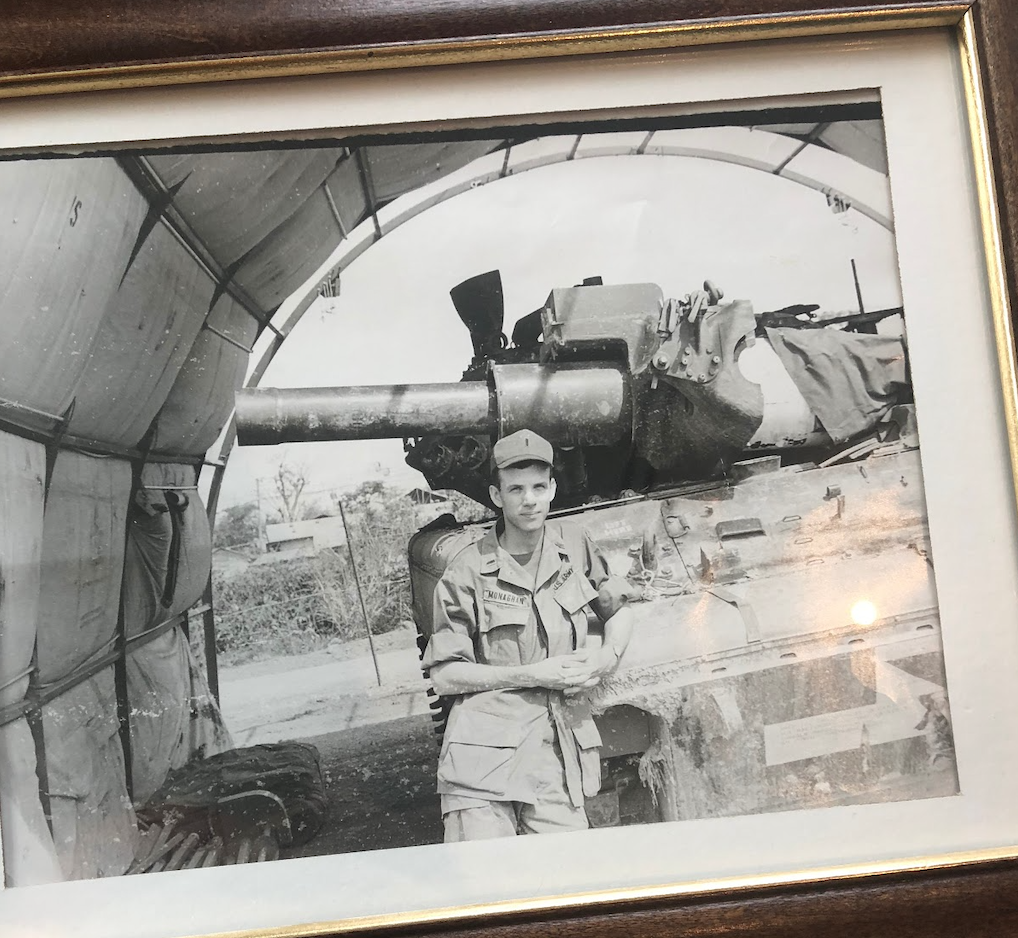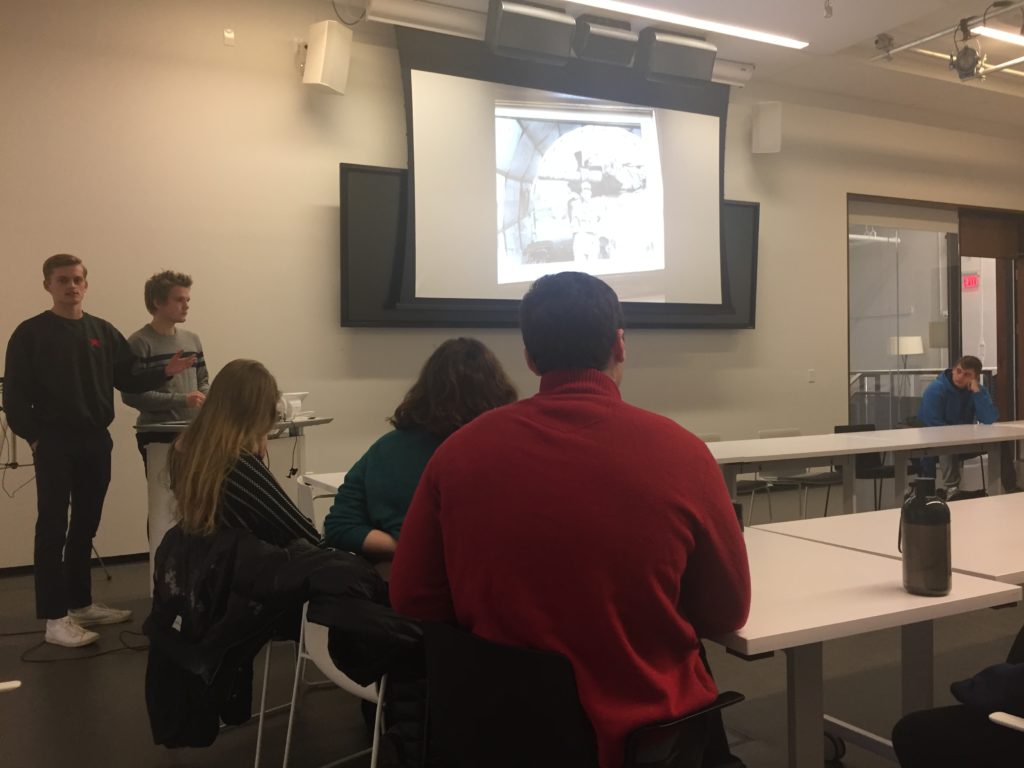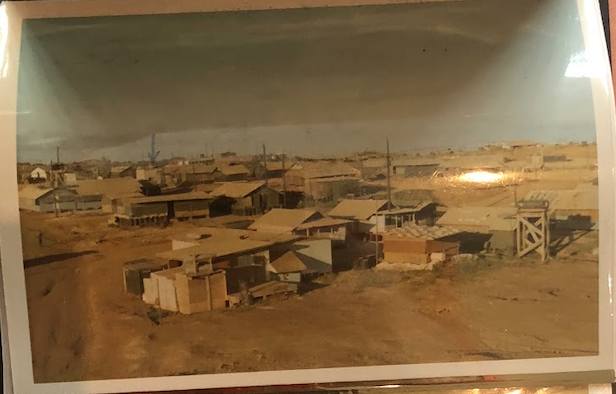Interviewed by James Barker and Jack Hunter
Served in Vietnam 1969-1970

Jim Monaghan served in the US Army in Chu Lai, Viet Nam from October 1969 to 1970. He graduated from St. Joseph’s University, and was drafted into service after college. In Viet Nam, he was a company commander in charge of 120 men and $2.5 million worth of equipment. His main job was to make sure that all the weapons and equipment used by the American troops on base and in the field were operational. After returning from Viet Nam, he spent much of his life in the US Army Reserves, and is heavily involved with veterans’ affairs.


Reflections on the interview from James Barker:
Our interviewee, James Monaghan (“Jim”), was more than happy to share his story with us, and seemed eager to answer any and all questions we had for him. Not only that, but his storytelling ability was also top-notch, and his answers to our questions were detailed, elegant, poignant, and even sometimes funny. I think Jack and I were very lucky to interview him. Several times, he apologized to us that he didn’t have the gory, crazy stories that you might hear in a documentary like Ken Burns’ Vietnam, but of course that wasn’t an issue. We weren’t looking for the craziest stories; we just wanted to hear about the experiences of an American soldier. In that regard, Jim was great. Overall, I feel like I’ve learned a lot about the interview process from this project. It’s very difficult to come up with in-depth and thorough interview questions, especially when you don’t know that much about your interviewee beforehand. And things don’t always go according to plan. You might think that your interviewee will have a ton to say about Topic A, and nothing to say about Topic B, but in the interview they’ll talk for fifteen minutes about Topic B and two minutes about Topic A. You have to think quickly and stay in the moment, and respond to what your interviewee is giving you. Otherwise you’ll be asking a lot of questions about something they don’t have a lot to say about, and very few questions about something very important to them. At the end of the day, everyone has a compelling narrative to tell. It just takes the right questions to get them to tell it.
Reflections on the interview from Jack Hunter:
I found that what I learned most from the project is how differently information is gathered when you are learning of someone’s personal experience rather than an aggregate of experiences through a lecture or a text. I also learned that one of the most important and time consuming part is not the actual interview but instead creating a proper set of questions that will actually create an environment to gain a lot of knowledge about a subject. What I found the most interesting and useful was having to frame the questions as mainly open-ended but also slightly guided so as to gain the information I was looking for as well as keep the interview feeling natural.
Full research and reflection papers:
